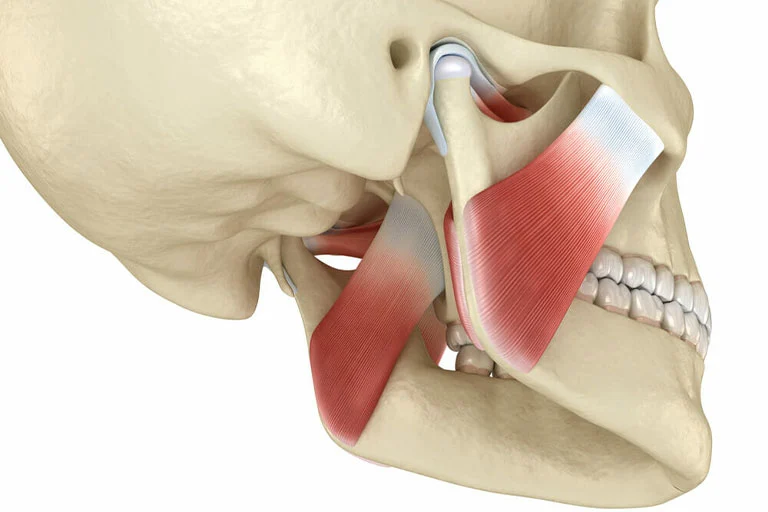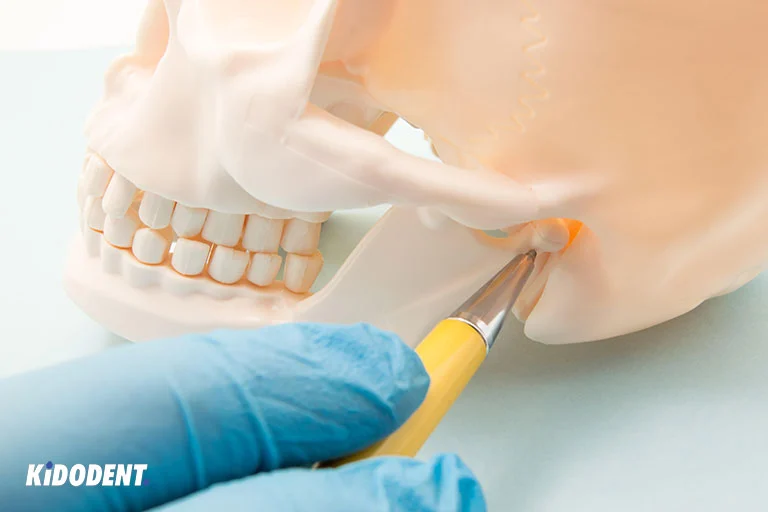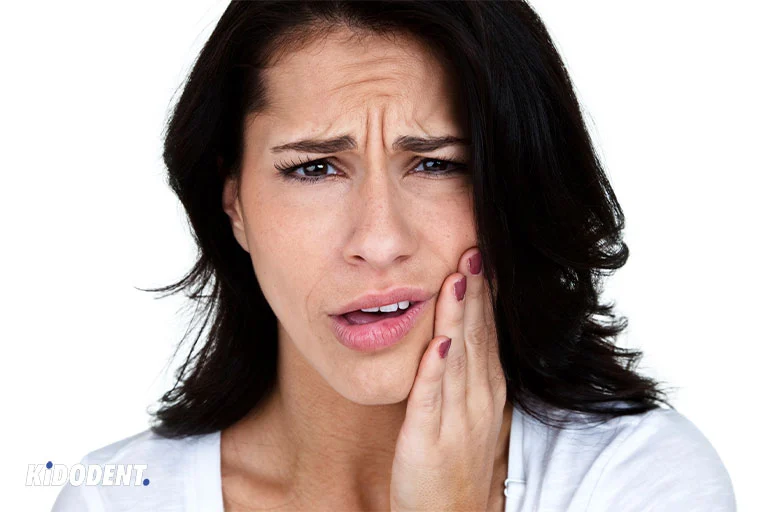Jaw pain is a common issue that can be severe or mild. It can be a debilitating condition with severe forms which can affect your overall life and ability to eat and speak. Many factors can cause jaw pain, from a toothache, gum disease, or sinuses. But sometimes, jaw pain can be caused by tension in your jaw due to chronic conditions like teeth grinding or temporomandibular joint (TMJ) disorders. It is necessary to see a doctor or dentist for diagnosis and discuss the appropriate treatments accordingly. For now, read on to learn more about the causes and get to know the treatment options available to relieve jaw pain.
What does jaw pain feel like?
When you experience jaw pain, there can be various symptoms to look for depending on the cause. The symptoms can be:
- Feeling of aching, stiffness, or sudden pain in the jaw bone in the area near your ear
- Shooting electric shock pain
- Pain in the facial areas, including the jaw, ear, or around your eye
- Sore jaw muscles
- Clicking or popping sounds in your jaw
- Jaw locking which causes difficulty opening or closing your mouth
- Grinding or clenching your teeth
- Constant headaches
- Pain when you chew or difficulty in chewing
- Tooth pain
- Swelling
- Sensitive teeth
- Bleeding gums or feeling tenderness in your gums
What causes jaw pain?
There can be multiple causes why you feel pain in your jaw, including:
Temporomandibular joint disorder (TMD) and muscles disorders

Temporomandibular joint disorder (TMD), also referred to as TMJ, is one of the most common causes of jaw pain. It affects more than 10 million people in the U.S. The jaw joint, or let’s say temporomandibular joint, is one of the complex parts of the body. Temporomandibular joint combines hinge action and sliding movements, enabling you to move your jaw easily up and down, side to side, and in and out motions.
It is sometimes difficult to know the exact cause of TMJ disorder. It can occur due to an impact of a jaw injury, grinding your teeth at night, arthritis, or other impacts that could damage the bone, disc, or jaw muscles which in turn affects the smooth normal movement of your jaw.
Some people who grind and clench their teeth habitually (bruxism) may experience jaw pain. However, this doesn’t mean they may develop TMJ disorder. TMJ disorder signs can include pain and soreness in the jaw, aching pain in or around the ear, clicking or locking of the jaw, and difficulty opening or closing your mouth.

Bruxism (teeth grinding)
Bruxism is involuntary teeth grinding or clenching. Many people who suffer from bruxism frequently grind their teeth while they are asleep. Without prevention, the habit not only has serious effects on teeth, causing tooth enamel to wear down or leading to broken and chipped tooth, but also puts excessive tension on the jaw joint and muscles.
You may wake up with jaw pain, discomfort, and headache. While stress and anxiety are the two most common reasons why you may be grinding your teeth, there are various other factors. Your bruxism can be related to genetics, an underlying health condition, or side effect of certain medications.
If you think you might be grinding your teeth and you have jaw pain, consult your dentist to find the right treatment and prevent further damage to your teeth and other oral structures. Your dentist can recommend wearing a custom night guard to prevent the bruxism from hurting your teeth and reduce the risk of pain in your jaw and facial muscles.
Cluster headaches
Cluster headaches are one of the most painful types of headaches. The pain is often located in the back or around one of the eyes, but it can radiate to other areas of your face, jaw, and neck.
Trigeminal neuralgia
Trigeminal neuralgia is a condition characterized by intense, stabbing pain similar to an electric shock which commonly affects one side of your face. The pain comes from the trigeminal nerve with branches that control sensations in much of your face including the forehead, cheeks, jaw, and gums.
Tooth abscess (infection)
Sometimes severe tooth infections, also called abscessed tooth, can cause jaw pain. A tooth abscess is a pocket of pus caused by bacterial infection that is formed in or around the tooth. The infection and pain can spread to the jawbone or other areas.
You should seek dental care for diagnosis and immediate treatment by your dentist for an abscessed tooth. Treatment can involve incision of the abscess and drainage of the pus. Your dentist may also perform root canal or prescribe antibiotics if needed.
Gum disease
In addition to tooth decay risk, poor oral health is the main reason for gum disease issues. If you are not caring enough about your teeth and gums with regular brushing and flossing, this can cause bacteria to grow and build up between your teeth and gums. Overtime, lack of teeth cleaning leads to the accumulation of plaque on teeth and the formation of calculus—the hard deposits of plaque. The bacteria in plaque can then spread below the gum line which causes the first gum disease stage, known as gingivitis.
If this goes untreated, the bacteria can lead to more infection between your gums and tooth, forming a gap or periodontal pocket.
This stage of gum disease is labeled as periodontitis. It involves the deterioration of the tooth-supporting structures, the bone and soft tissues. It is extremely important to prevent gum disease in the first stages and visit your dentist if you notice signs such as tender or bleeding gums.
Gum infection may cause pain that may radiate to your teeth and the jaw.
Other conditions
Your jaw pain could be a symptom of other conditions, a couple of which require immediate treatment. Here are other risk factors if you experience jaw or other facial pain:
- A symptom of coronary artery disease and heart attack, although there are other symptoms, such as shortness of breath, chest pain, or physical fatigue. This is an emergency, so call 911 immediately if you notice these signs.
- Obstructive sleep apnea (OSA)
- Sinusitis
- Arthritis
- Salivary gland disorders
- Ear infection
- Temporal arteritis

Jaw pain treatments and relief
Now that you know jaw pain has many possible causes, it is important to seek professional help for diagnosis and treatment. After taking X-rays and conducting necessary medical examinations, your dentist or doctor provides you with the appropriate treatment.
Medical treatments
While your jaw pain may be treated with non-invasive treatments, there are situations that surgical and other medical intervention is necessary to relieve your jaw pain.
Here are some treatment options:
- Mouthguard. Wearing a mouthguard helps protect your teeth and mouth if you are grinding your teeth. Mouthguards can also be a way to alleviate TMJ symptoms and improve sleep-related conditions like sleep apnea.
- Dental treatment. You might need a filling, dental crown, or root canal procedure for your decayed tooth or to treat cavities. Your dentist may sometime resort to extraction with severely decayed and infected tooth.
- Treatment for your gum disease. Your dentist or periodontist may recommend a number of treatments for your gum infection based on the stage of gum disease. This can range from deep cleaning, fluoride treatment, or antibiotic therapy to surgeries to regenerate your gum such as gum or bone grafting.
- Muscle relaxers (muscle relaxants). If a mouthguard doesn’t work to treat your jaw pain, your dentist can prescribe muscle relaxers to soothe your jaw muscle tensions and spasms.
- Botox injections. Injecting botulinum toxin (Botox) into the jaw muscles may help relieve pain due to TMJ disorders and teeth grinding or clenching.
- Orthodontics. Sometimes, malocclusion —misalignment of the teeth—can be the reason for your jaw pain. You will need to see an orthodontist for correction. Your orthodontist can plan braces or other orthodontic tools to bring the bad bite and irregular teeth into proper alignment.
- Jaw surgery. If other methods don’t help, your doctor or dentist may suggest surgery to treat your TMD. There are various types of surgeries to correct TMJ disorder.
Lifestyle strategies to help relieve jaw pain in the long term
Keeping up with a healthy lifestyle can help prevent many problems from occurring in the first place. Here are some tips to reduce your jaw pain:
- Reduce your stress. You can try some stress-relieving techniques if your jaw pain is caused by stress. You can do relaxation therapies, meditation, or yoga. These activities may help reduce your jaw clenching and teeth grinding since stress is one of the main reasons for bruxism.
- Practice good oral hygiene. Brush your teeth twice a day and floss daily to prevent tooth decay and many harmful oral and dental problems. Seek dental care and have dental visits regularly.
- Increase your physical activity. Stay cheerful and keep your spirit up with some bodily activities. You may like to go for walking sometimes or play your favorite sports. Also, try physical therapies or stretching the muscles to decrease your facial and jaw pain.
- Avoid chewy foods and adopt a soft diet. Help prevent excessive jaw movement by avoiding crunchy, tough, and chewy foods. These foods not only put extra tension on jaw joints, but stick between your teeth and damage your teeth. So, avoid chewing ice and cut down on candies. Also, cut an apple into pieces next time you eat one.
